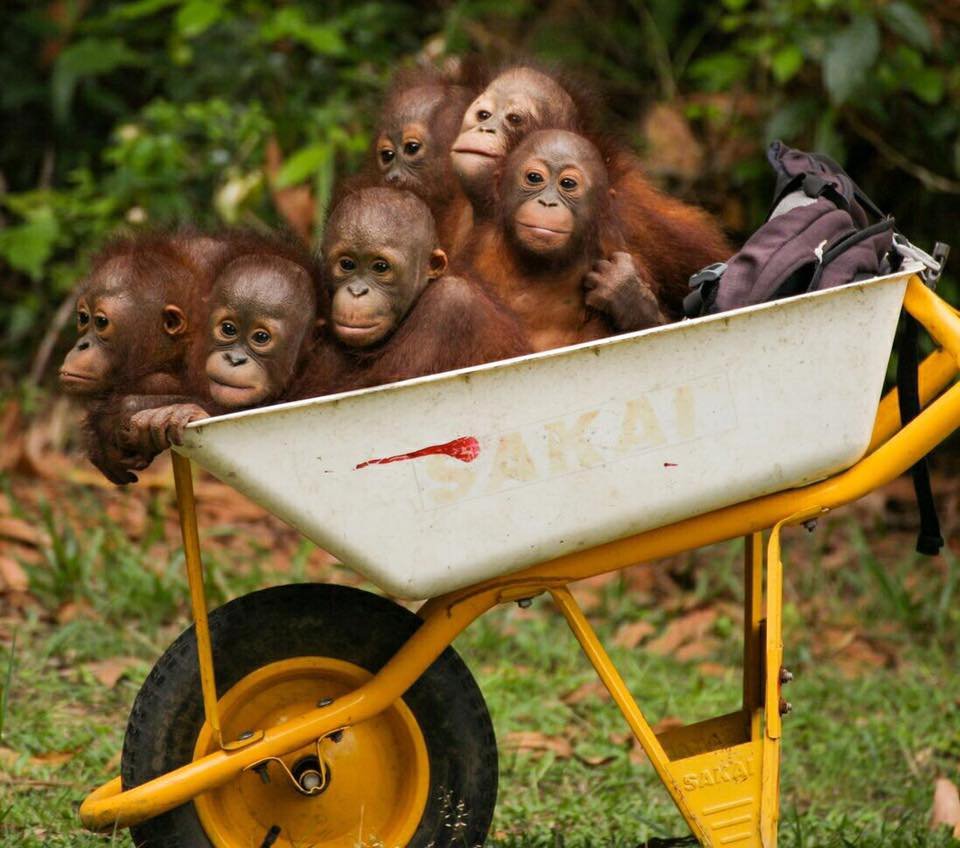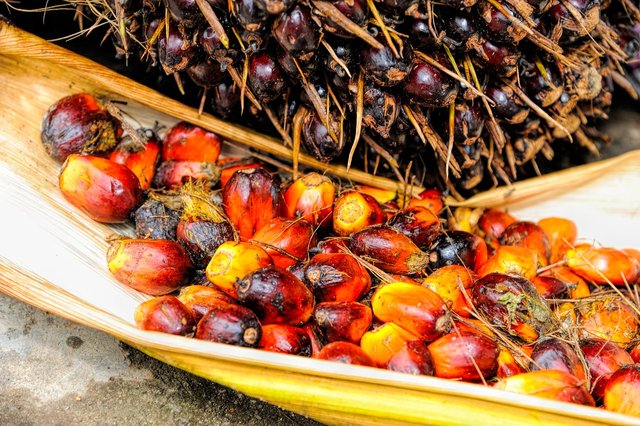The fate of Orphan Orang-Utans

Copyright remains with Scott M. Gilbert
This picture is probably making you drool and coo at these beautiful little faces, however, all is not as it seems. The beautiful, large eyes of these bouncing ginger apes hides a suffering that many of us are not aware of.
All of these tiny apes are orphans at the hands of the palm oil industry and illegal hunting.
Palm oil is an edible vegetable oil derived from palm fruit. It is grown in Africa, Asia, North America and South America. About 85% of all palm oil is produced and exported from Indonesia and Malaysia. Unfortunately, much of the virgin forest that is habitat for the Orang-Utan is being destroyed to produce palm oil and paper. Hectares of virgin forest are burned, along with the wildlife that inhabits it. I will save you the devastating pictures of burned, beaten and shot Orang-Utan's with their infants sitting next to their expired bodies. Many of these infants are taken as pets ending up in abusive situations. Many of them will end up at rehabilitation centers with wonderfully dedicated individuals who care for these youngsters. They are sent to forest school which allows them to learn the ways of the forest before they are released to safe forested areas. The problem with this approach is that it is consistently difficult to find adequately safe habitat. Many of those reintroduced end up being killed as the palm oil companies see these wonderful apes as pests. Often they end up in captivity for the rest of their lives.
PTSD-like symptoms have been found in elephants who have witnessed the culling of their herd and anecdotal evidence shows when males grow up they often show bully like behavior. More depressive-like and stereotypical behaviors were found in rescued laboratory chimpanzee's when compared to those in wild sanctuaries. Why then would PTSD-like not be a part of the developmental experience in orphaned animals, in this case Orang-Utans?
Apart from the trauma associated with these experiences induced by man I question what this does for the socialization of these orphaned Orang-Utans. How does the experience of captivity change behaviors? How does the food and drugs used as interventions affect their behavior and psyche? Finally, they are not group animals and yet to deal with the shear numbers of Orang-Utan orphans they are raised unnaturally in groups as they progress through what is called forest school?
To the best of my knowledge I have not been able to find specific research investigating the psychological effects of these traumatic experiences on these Orang-Utan infants let alone the effects of maternal loss and it's effects in adulthood.
Next time you buy food products (vegan biscuits for e.g.), soaps, Paper (Asia Pulp and Paper) and cosmetics think about the consequences of buying these brightly packaged products marketed as vegan, natural and safe.
References:
http://www.saynotopalmoil.com/Whats_the_issue
http://www.dailymail.co.uk/news/article-4703184/Orangutan-orphan-left-die-graduates-baby-class.html
https://e360.yale.edu/features/with_the_clearing_of_forests_baby_orangutans_are_marooned
http://www.newsweek.com/orangutan-orphans-have-nowhere-go-81523
http://journals.sagepub.com/doi/abs/10.1177/0539018406063643

Nice post sir amazing photography and also animal thanks for sharing
help me, i just joined in steemit
Boost Your Post. Send 0.100 STEEM or SBD and your post url on memo and we will resteem your post on 5000+ followers. check our account to see the follower count.
Hi. I liked your post, keep it up. I wish you good luck and have a good day. :)
thanks you too.